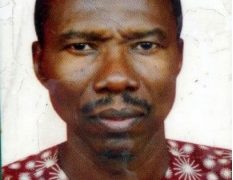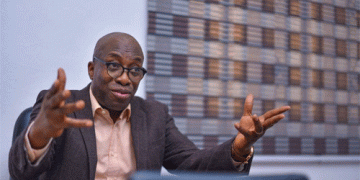By Abidemi Adebamiwa
When Nigeria’s Minister of Works, David Umahi, announced that the Lagos Calabar Coastal Highway would cost ₦7.5 billion per kilometre, or about $5 million, the country took notice. The 700-kilometre highway, expected to cost more than ₦5 trillion, has become a national conversation about ambition, transparency, and trust. Umahi explained that the figure covered solar lighting, shoreline protection, flyovers, and retaining walls, and that his integrity stood behind the numbers.
Earlier in April 2024, the same minister told Channels TV that the project would cost ₦4 billion per kilometre, a claim that left many Nigerians wondering what changed so quickly. BusinessDay Nigeria reports that the national average cost of building a road is about ₦3.7 billion per kilometre, already higher than in most parts of Africa. In Kenya, for example, the 440-kilometre Nairobi to Mombasa expressway was built at roughly ₦4 billion per kilometre from a total of $3.6 billion.
The Environmental and Social Impact Assessment for Section 2 of the coastal highway, prepared by Natural Eco Capital Limited for the Federal Ministry of Works, gives the first technical breakdown. It places the cost of that 55-kilometre stretch at ₦1.07 trillion, which is about $711 million, or ₦4.33 billion per kilometre. The section is designed as a ten-lane highway with a rail line running through the center, along with lighting, drainage, service ducts, and shoreline protection. The report also predicts that the first phase of the road could lift Lagos State’s economy by half once it links the Lekki Deep Seaport, the Dangote Refinery, and the Lekki Free Trade Zone.
Still, the project has faced questions about how it was awarded. Critics from civil society and the opposition say the contract did not follow an open bidding process. The Guardian newspaper and the Athena Centre argue that awarding such a massive contract without public competition runs against the Public Procurement Act of 2007. They point out that tender documents, evaluation reports, and details of other potential bidders have not been released. Opposition leader Atiku Abubakar has also asked for full disclosure of the contract’s cost and bidding records.
Others worry about possible political connections. Commentators have linked Hitech Construction Company, the project’s contractor, to the Chagoury Group, which has been active in several large public projects over the years. Some property owners affected by the new alignment, including the Landmark Group, have said they were not properly consulted or compensated.
The government has defended its choice. Minister Umahi says the contract followed a restrictive process allowed by law for specialized projects. He insists Hitech was selected because of its record in reinforced concrete paving and coastal engineering. Presidential aides say the project is being carried out in phases with full oversight and no hidden agreements.
For a project of this magnitude, words alone are not enough. Nigerians deserve an open procurement process that publishes bids, costs, and contracts for public scrutiny. Transparency will not slow development; it will build confidence.
The Lagos Calabar Coastal Highway could become proof that Nigeria can build boldly and accountably. Or it could end as another story of wasted promise. The strength of the road will depend not only on the concrete beneath it, but on the integrity that holds it up.
Abidemi is a political analyst and the Managing Editor @ Newspot Nigeria.









